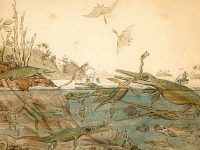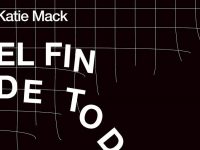
|
English physicist and writer Charles Percy Snow (1905-1980) sometimes asked representatives of the so-called «traditional culture» – humanism for him – if any of them could explain the second law of thermodynamics. The answer was always cold and negative. Snow considered the question similar to asking a scientist if he had read a Shakespeare play. Snow was no luckier when reversing the test and asking British scientists and engineers. Some – a few ones – had read a lot of literature, but most answered they had «tried a bit of Dickens». Snow was shocked: they had tried, «rather as though Dickens were an extraordinarily esoteric, tangled and dubiously rewarding writer». Examples can be found in the text he read in the Rede conference in 1959 – Rede conferences are annual public readings celebrated in Cambridge University; they carry the name of Sir Robert Rede, an important British lawyer who died in 1519. Snow entitled it The Two Cultures and the Scientific Revolution and the first half of the title became popular. Thus, we often speak of the two cultures – science and humanism –, which, unfortunately according to Snow, were too far apart, separated by a wall that made communication between individuals very difficult. Snow went further than just denouncing this separation. From his text we could draw the conclusion that scientific culture was ignored or belittled by writers and had not enough weight in the British educational system of the time. He predicted an important underdevelopment of the country if they did not take urgent action. At the same time, he felt sorry that humanists had no interest in science and technology. He described them, literally, as Luddites – British textile workers from the nineteenth century who violently opposed the use of machines because they meant fewer jobs. Snow described humanists in this way because, according to him, they had never tried to understand – not even accept – industrial revolution. Snow denounced a serious communication problem from the point of view of both cultures. He researched spectroscopy but he always wanted to be a novelist. And he was: he published more than a dozen novels. He offered interesting and even evident standpoints, but he could have used a more moderate style that would have granted him a better acceptance. Still, the debate he opened still survives. He had the «good fortune» of being answered in 1962 by the influential critic and professor Frank Raymond Leavis (1895-1978), who entitled his 1962 Richmond conference Two Cultures? The Significance of C. P. Snow – Richmond conferences are annual sessions in Cambridge, and carry the name of admiral Herbert Richmond (1871-1946). In the conference – later published in The Spectator and also as a book a year after that – Leavis devoted more space to attack the scientist-novelist than arguing against his thesis. Leavis undoubtedly contributed to the debate, but questioning Snow’s level – «not only is he not a genius, he is intellectually as undistinguished as it is possible to be» – and the forcefulness of his judgement earned him a lawsuit, and he had to pay a compensation. His attacks favoured Snow, who earned the sympathies of those who are victims to disproportionate attacks. If Snow had not been very diplomatic in his 1959 conference, Leavis shot himself in the foot. His thesis claimed the superiority of humanism to study and comprehend human values. In fact, it was a practical demonstration of the opposite: all his brilliant literary baggage did not help him measure the reach of his words. Yet his complaint that progress could not be based simply on technological improvement was hardly debatable. There was a historical precedent for the debate, with naturalist Thomas Henry Huxley (1825-1895) and poet, teacher and essay writer Matthew Arnold (1822-1888). Their opinions on the issue were frequent, but we can highlight Huxley’s Science and Culture conference on October 1, 1880, during the opening of the Sir Josiah Mason’s Science College and Arnold’s Rede conference – curious coincidence with Snow – on June 14, 1882, under the title Literature and Science. This last one was revised and disseminated after a tour across the United States. Their debate and relationship was much more polite and friendly that Snow and Leavis’s, and each one defended his point showing interest and respect towards the other. Huxley and Arnold, probably as most of their colleagues at the time, were closer than Snow and Leavis and their colleagues almost a century later. The debate between these last two authors apparently proves Snow’s point on the impassable wall separating scientists and humanists. Luckily, there were also others who were able to break it, even if just as a critic. |
«Other works have more recently faced two characters from different backgrounds. Curiously enough, the scientist or technologist is usually a man, and the humanist or writer a woman» |
|
 Mètode MètodeCharles Percy Snow regreted how the two cultures – science and humanism – were too far apart, separated by a wall that made communication between individuals very difficult. |
«From his text we could draw the conclusion that scientific culture was ignored or belittled by writers and had not enough weight in the British educational system of the time» |
|
|
Frisch and Junger, before Snow Two years before Snow’s conference, writer Max Frisch published the novel Homo Faber. The main character is Walter Faber, an engineer working for Unesco in projects for developing countries. The title of the novel is a pun with his name and the epithet his ex-wife uses to refer to him. The nickname fits Walter Faber, technocrat who cannot live without technique and who seems to know everything by heart. He does not believe in luck or in providence and always guides himself with rationality and objectivity. But Frisch – who was an architect and a novelist, and part technocrat himself – prepares a plot that makes him face his own contradictions. Luck completely changes his plans and helps him understand episodes of his past he ignored. Frisch introduces an exaggerated technocrat to us, and pushes him to the limit. He is used to «see everything the way it is» and cannot get to «feel anything similar to eternity». This vision of time is one of the reasons he clashes with his ex-wife, Hanna. She considers technique a device to eliminate the world as resistance, «for instance reducing time so we don’t have to live it». The technicians’ mistake is to try to live without death, so they do not relate to time. Faber changes in the end. Such heartrending events make him recognise «our job is to ride a donkey […] somewhere, but, mainly, to be able to resist light, happiness». We have to «resist time and eternity in an instant. To be eternal: to have been». The events awake this sensibility in Faber. But cultural indifference can also play against other characters who show ignorance of many other fields. Faber had never visited the Louvre, but the girl he meets on the ship had never heard anything about entropy or cybernetics. At least, she listens to him with attention and seems to understand them quickly. The wall around Faber is not the only one that must fall. The debate is not as crude as it is in Gläserne Bienen (“The Glass Bees”), published also in 1957 by German author Ernst Jünger. The novel, full or irony, shows a mechanised world where Giacomo Zapparoni is one of the richest men in the world. He produces robots and sells his machines «for every purpose you can imagine». His specialty is diminutive robots, in advance of «nanorobotics». Against Zapparoni there is Lorenz, old cavalry officer with a fixed idea: «machines are the origin of all evil». He wanted to «blow up the factories, redistribute land and turn the country into a rural empire. Then everyone would be healthy. Happy and at peace.» |
|
|
 English PEN English PENDavid Lodge states in his essay Consciousness and the Novel that literature «is a record of human consciousness, the richest and most comprehensive we have». But admits the importance of scientific breakthroughs and their consequences. In Nice Work (cover on the right) the conflict opens between Robyn Penrose, a literature professor, and Vic Wilcox, a middle-aged businessman. He advocates for a useful education, while the professor believes it should be based on ideas and feelings. |
«The complementarity of approaches in Lodge’s exposition of the issue builds an interesting and enriching bridge between the two cultures» |
|
|
Lodge and Powers: debate on the brain Other works have more recently faced two characters from different backgrounds, less different than Zapparoni and Lorenz. Curiously enough, the scientist or technologist is usually a man, and the humanist or writer a woman. Londoner David Lodge did it in two novels. In Nice Work, the conflict opens between Robyn Penrose, a literature professor, and Vic Wilcox, a middle-aged businessman. He advocates for a useful education, while the professor believes it should be based on ideas and feelings. For Wilcox, the only valid criterion to assess education is the money it earns based on spent time and energy. Penrose opts for good work – or nice work, as in the title –, gratifying and with sense. The debate grows in his 2001 novel Thinks… The title seems a reference to intimate trivial thinking, exemplified, as one of the characters says, in the thought balloons of comics, which are clearley different from speech balloons. The encounter here is between Ralph Messenger, director of the Centre for Cognitive Science, a married scientist and a flirter, a lover of fame and money, and Helen Reed, an attractive writer, recently widowed. Events happen in the non-existent Gloucester University, where the Science and Humanism buildings are separated by a space that was going to be filled with the extension of the university but became an «architectural allegory of the two cultures». Dialogue gives rise to debate on many issues, but often, due to Messenger’s job, they focus on conscience and consideration of the human mind as a complex element, yet rationally explainable. Reed listens to explanations with interest, but always believed that «consciousness was the province of the arts, especially literature, and most especially the novel» and resented «the idea of science poking its nose into this business, my business». When Messenger invites her to an interdisciplinary conference, Reed claims in her intervention that «fiction is an irreplaceable tool of human self-knowledge». Reed’s thesis is just the writer’s, as Lodge himself showed in a 2002 essay, Consciousness and the Novel, in which he used the thorough documentation he used for Secret Thoughts. Literature, the author claims, «is a record of human consciousness, the richest and most comprehensive we have». But one does not rule out the other, and Lodge admits in the foreword that the idea for the novel came from the realization that consciousness had become «a hot topic with challenging consequences for those whose assumptions about human nature have been formed by religious, humanist, and literary traditions». The complementarity of approaches in Lodge’s exposition of the issue builds an interesting and enriching bridge between the two cultures. In the essay, Lodge dedicates several pages to the 1995 novel Galatea 2.2, by American writer Richard Powers. The narrator’s name is also Richard Powers. He is a writer who enjoyed a certain fame with his first novels, one of which had a scientific background. After living in the Netherlands, he goes back to the United States as visiting professor-in-residence in the immense and well-equipped Center for Advanced Studies, where he will be the «symbolic humanist». There he would meet Philip Lentz, who studies consciousness through a way in the midst, combining pure artificial intelligence and neuroscience: he works with neural networks. Lentz bets he will be able to build a neural network that can pass the exam Powers took to get his Language degree. It was a six-page text list in which students had to identify name of the work, author, location and meaning. After different tries, the network is unable to pass the exam. Powers’ final thesis seems to be the impossibility of making the machine understand transcendence, how the human body «learnt to understand time and whatever lies beyond time». To add some mysticism, ultimately. |
«Snow denounced a serious communication problem from the point of view of both cultures. He researched spectroscopy but he always wanted to be a novelist» |
|
 Chris Boland Chris BolandIan McEwan is maybe the author who, together with Powers, did the most to break the barrier described by Snow. His novel Solar deals in a humorous way with the winner of a Nobel Prize for Physics, Michael Beard, sceptical at first with climate change, who suddenly finds in the phenomenon a way to go back to his first plan and get profit from a clean energy system. |
«Climate change serves as an excuse for the English author to explore human nature: we are not used to consider very large spans of time nor to do favours to people who do not exist yet »
|
|
|
McEwan: The scientist of letters Away from machines, but not from mind and conscience, we find Ian McEwan, maybe the author who, together with Powers, did the most to break the barrier described by Snow. Science is very present in his novels. One of the best examples is Enduring Love, published in 1997, in which we find yet another confrontation of the rationalist, scientific man and the humanist woman. Joe Rose is a physicist who gave up the possibility to write a thesis on quantum electrodynamics to open a business with a colleague. When it fails, it is too late to resume his research career, so he starts working as a science communicator. Joe is married to Clarissa, a Keats scholar who looks for any detail in letters, notes or old books that lets her understand better some of the poet’s thoughts, motivations or experiences. McEwan brings them face-to-face in several topics such as emotion. Joe thinks Keats was «A genius, no doubt, but an obscurantist too, who had thought science was robbing the world of wonder». Joe quotes Darwin and his studies on the emotions of animals and men. Clarissa, though, has no interest on a zoologist’s opinion on the smile of a child, because «The truth of that smile was in the eye and heart of the parent, and in the unfolding love that only had meaning through time». But Joe discusses these issues not only with Clarissa. An obsessive patient stalks him. His name is Jed, and he suffers from Clérambault’s syndrome. The illness carries the name of the French psychiatrist Gaëtan de Clérambault (1872-1934), and is also known as erotomania. Jed is in love with Joe and thinks Joe loves him back and sends him coded messages. But Jed is something else: he is a religious fundamentalist who believes his God-sent mission is to join Joe and push him out of rationalism. In his letters, Jed reproaches Joe’s science-centred point of view. He cannot stand the conviction with which he talks about those issues: «There’s never a moment’s doubt or hesitation or admission of ignorance. You’re there with the up-to-the-minute truth on bacteria and particles and agriculture and insects and Saturn’s rings and musical harmony and risk theory and bird migration…». While Max Frisch chose an extreme example of technologist, McEwan added to the side of the Keats scholar a character that cannot be representative of an eloquent anti-rationalist. But the three-way clash is still interesting. McEwan went back to science with Saturday, a novel that follows a day in the life of neurosurgeon Henry Perowne, with the 2003 protests against the Iraq war as a background. Perowne, as several other characters, is the scientist without feelings: «[…] Perowne knows himself to be incapable of pity. Clinical experience wrung that from him long ago». A practice that includes delicate surgical procedures McEwan describes in detail and with a rich scientific vocabulary, after familiarising himself with them and observing some before writing the novel. This cerebral and precise work distanced Perowne from fantasy: «[a] man who attempts to ease the miseries of failing minds by repairing brains is bound to respect the material world, its limits, and what it can sustain – consciousness, no less». So he rejects fiction with supernatural elements, which he considers the recourse of an insufficient imagination: «When anything can happen, nothing much matters.» Author and character seem to coincide in that, at least partly. McEwan stated in an interview, when he was asked about science helping him develop his plots: «Absolutely. I think one of the reasons I find a lot of novels boring is that they’re only about the emotions; they don’t have enough muscular intelligence. I like novels that have got both». In fact, McEwan is very hard on his writer colleagues. In a different interview he said: «Humanism degrees have an undeniable point of arrogance, because they avoid confrontation with the real intellectual difficulties scientists have to fight everyday». And also: «Anyone with a medium intelligence can study a humanism degree». Science helps him develop reflections. His second-to-last novel, Solar, published in 2010, deals in a humorous way with the winner of a Nobel Prize for Physics, Michael Beard, who basically exploits the award to earn money and conquer the hearts of women. Beard, sceptical at first with climate change, suddenly finds in the phenomenon a way to go back to his first plan and get profit from a clean energy system. McEwan uses some debates to ridicule post-materialism or radical feminism. Climate change serves as an excuse for the English author to explore human nature, because global warming and its effects, he said in an interview, clash with our nature: we are not used to consider very large spans of time nor to do favours to people who do not exist yet – for instance, taking steps to alleviate climate change and avoid catastrophic effect for mid and late century. Therefore, scientific motivation turns into much more than an ingredient to make stories more exciting or unique: they make us think about the paradoxes of human nature we had never considered before. Introducing them in a novel is a nice solution to establish the complementarity of the two cultures. |
|
|
REFERENCES
Cartwright, J. H. and B. Baker, 2005. Literature and Science. Social Impact and Interaction. ABC-CLIO. Santa Barbara, California.
Frisch, M., 1994. Homo Faber. Edicions 62. Barcelona.
Griggs, J., 2010. «Ian McEwan: Mr. Sunshine». New Scientist, 31 March 2010.
Jünger, E., 1995. Abejas de cristal. Alianza. Madrid.
Leavis, F.R., 1963. Two Cultures? The Significance of C. P. Snow. Pantheon Books. New York.
Lodge, D., 1990. Bona feina. Eumo. Vic.
Lodge, D., 2002. Pensamientos secretos. Anagrama. Barcelona.
Lodge, D., 2004. La conciencia y la novela. Península. Barcelona.
McEwan, I., 1998. Amor perdurable. Destino. Barcelona.
McEwan, I., 2005. Dissabte. Empúries. Barcelona.
McEwan, I., 2011. Solar. Empúries. Barcelona.
Nopca, J., 2011. Entrevista a Ian McEwan. Ara, 24 March.
Powers, R., 1997. Galatea 2.2. Random House Mondadori. Barcelona.
Snow, C.P., 1965. Les dues cultures i la revolució científica. Edicions 62. Barcelona.

 The main character in Homo Faber is Walter Faber, an engineer who cannot live without technique and who seems to know everything by heart. He does not believe in luck or in providence and always guides himself with rationality and objectivity. Frisch introduces an exaggerated technocrat to us, and pushes him to the limit.
The main character in Homo Faber is Walter Faber, an engineer who cannot live without technique and who seems to know everything by heart. He does not believe in luck or in providence and always guides himself with rationality and objectivity. Frisch introduces an exaggerated technocrat to us, and pushes him to the limit. In Ernst Jünger novel Gläserne Bienen (“The Glass Bees”), we find a mechanised world where Giacomo Zapparoni is one of the richest men in the world. He produces robots and sells his machines «for every purpose you can imagine». Against Zapparoni there is Lorenz, old cavalry officer with a fixed idea: «machines are the origin of all evil».
In Ernst Jünger novel Gläserne Bienen (“The Glass Bees”), we find a mechanised world where Giacomo Zapparoni is one of the richest men in the world. He produces robots and sells his machines «for every purpose you can imagine». Against Zapparoni there is Lorenz, old cavalry officer with a fixed idea: «machines are the origin of all evil». Galatea 2.2, by American writer Richard Powers, presents a writer who enjoyed a certain fame with his first novels, one of which had a scientific background. After living in the Netherlands, he goes back to the United States as visiting professor-in-residence in the immense and well-equipped Center for Advanced Studies, where he will be the «symbolic humanist».
Galatea 2.2, by American writer Richard Powers, presents a writer who enjoyed a certain fame with his first novels, one of which had a scientific background. After living in the Netherlands, he goes back to the United States as visiting professor-in-residence in the immense and well-equipped Center for Advanced Studies, where he will be the «symbolic humanist».



